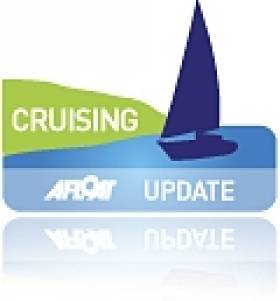Displaying items by tag: Commercial Sail Passenger Boat Regulations
Cruising School No Longer Operating in Irish Waters
South East Cruising School is no longer operating in Irish waters and in a letter to Afloat magazine, Principal Charlie Kavanagh, outlined his reasons for closure. The letter is reproduced below. The Marine Survey Office (MSO) was offered a right of reply but to date we have had no response.
Sir,
Having operated my business, South East Cruising School, under the auspices of the Irish Sailing Association for the last 14 years, I am very sorry to say that due to adverse circumstances, I now find that I can no longer operate in Irish waters.
In that time, I have assisted well over a 1,000 sailors to learn about our sport and improve their skills in a safe environment. I would like to take this opportunity to say thanks to each and every one for their custom and friendship over the years.
I recently submitted my boat for inspection under the Commercial Sail Passenger Boat Regulations and the Marine Survey Office (MSO) conducted an initial survey last May, which has completely stalled over a number of issues. As it is my opinion that these matters will not be resolved amicably, I have no choice but to suspend things for now and look at other options.
For those of you not familiar with the process, the Department of Transport's MSO has drawn up a set of Regulations that, in my opinion, do not help to promote safer sail training.
They have refused point blank to consider adopting the UK's MCA Code of Practice, administered by the RYA, the world leaders in most matters relating to sail training and from whom I hold my Yachtmaster Instructor qualification.
Five years ago, we had close to 15 schools offering cruiser sail training, but this is now down to five or six, and it's unlikely any more will get through this process without severe cost to themselves and the security of their boat(s).
Also, to the best of my knowledge, we have no powerboat school for those wishing to learn big boat power handling. Not content with banishing Asgard II to remain in her watery grave, cruiser sail training in Ireland is fast being sunk by the State too, as it reduces the number of outlets that teach safe practices to the general public wishing to go to sea in our island nation.
In 1997, I set out to operate my school under the watchful eye of Paddy Boyd of the ISA and subsequently Tony Wright, both of whom worked hard to aid and supervise us under the ISA Cruising Scheme. My thanks go to them and all in the ISA for their help over the years. It is with a heavy heart that I have to let go of my dream, having suffered the highs and lows over the years, but 2010 has been a nightmare, thanks to the MSO.
As an Irish taxpayer and committed community person, I - like many others in the commercial marine community - am disgusted at the State's attitude towards sailing and the sea.
Yours in Sailing,
Charlie Kavanagh,
ISA/RYA Yachtmaster Instructor





























































